First there was gunpowder. Then nuclear weapons. Next: artificially intelligent weapons.
Get the latest international news and world events from around the world.
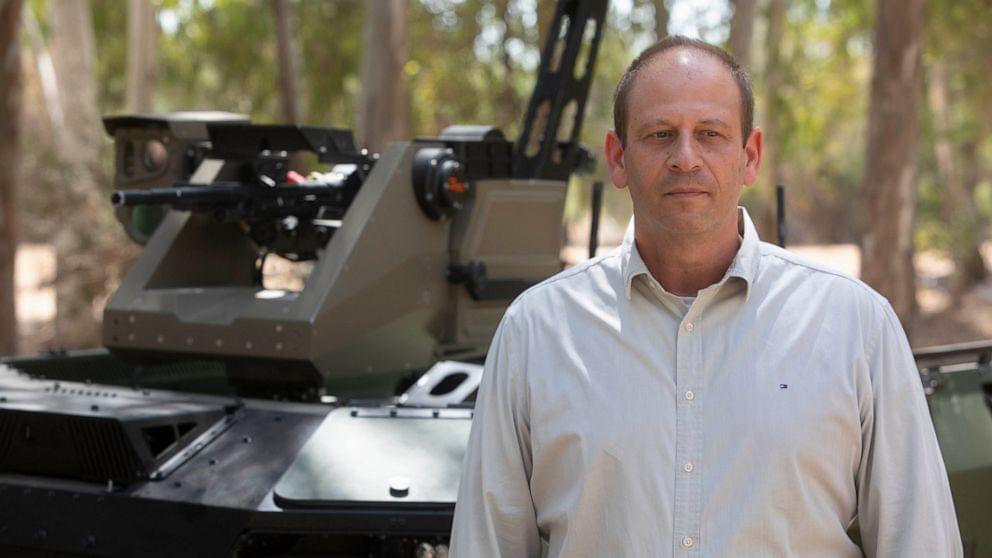
Israeli firm unveils armed robot to patrol volatile borders
LOD, Israel — An Israeli defense contractor on Monday unveiled a remote-controlled armed robot it says can patrol battle zones, track infiltrators and open fire. The unmanned vehicle is the latest addition to the world of drone technology, which is rapidly reshaping the modern battlefield.
Proponents say such semi-autonomous machines allow armies to protect their soldiers, while critics fear this marks another dangerous step toward robots making life-or-death decisions.
The four-wheel-drive robot presented Monday was developed by the state-owned Israel Aerospace Industries’ “REX MKII.”

Do we need humans for that job? Automation booms after COVID
Automation will drag on at the normal pace. 2025 i think will be the key year, where Human Level hands could turn up on the humanoid robots, and an early phase of Human Level AI turns up; if those 2 things happen automation of jobs will really start to move fast.
Ask for a roast beef sandwich at an Arby’s drive-thru east of Los Angeles and you may be talking to Tori — an artificially intelligent voice assistant that will take your order and send it to the line cooks.
“It doesn’t call sick,” says Amir Siddiqi, whose family installed the AI voice at its Arby’s franchise this year in Ontario, California. “It doesn’t get corona. And the reliability of it is great.”
The pandemic didn’t just threaten Americans’ health when it slammed the U.S. in 2020 — it may also have posed a long-term threat to many of their jobs. Faced with worker shortages and higher labor costs, companies are starting to automate service sector jobs that economists once considered safe, assuming that machines couldn’t easily provide the human contact they believed customers would demand.
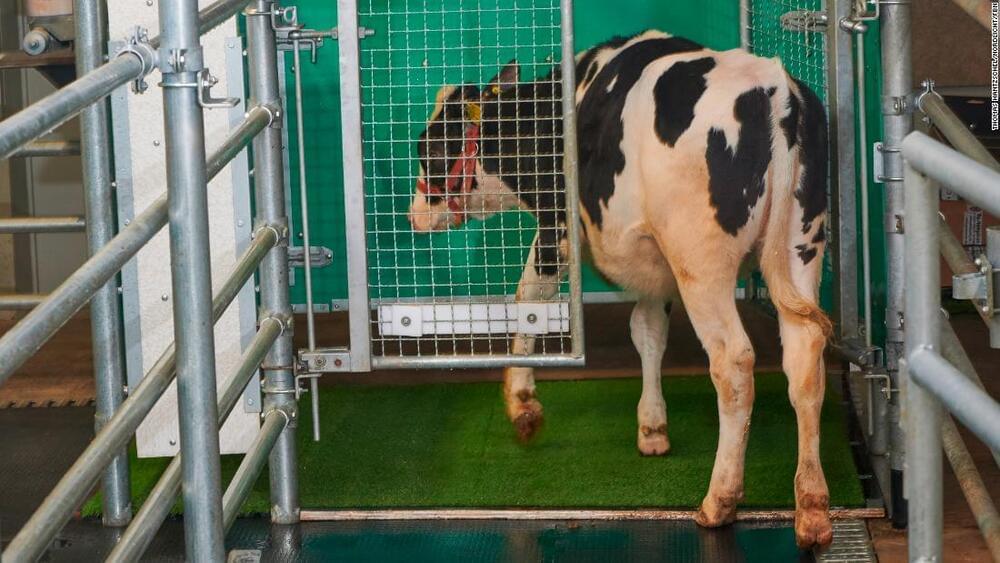
Scientists are potty-training cows in a bid to help save the planet
The results showed that calves performed at a similar level to children when learning to potty-train, and did better than very young children.
If you can potty-train a child, you can potty-train a cow. At least, that was the theory a group of researchers in Germany decided to test, in a bid to find a solution to the environmental damage caused by livestock waste.
“It’s usually assumed that cattle are not capable of controlling defecation or urination,” said Jan Langbein, co-author of a study published Monday in the journal Current Biology.
Farmed cattle produce roughly 66–88 pounds of feces and 8 gallons of urine each day and are free to relieve themselves where they please. However, the spread of their waste into the soil can have negative effects on the environment.
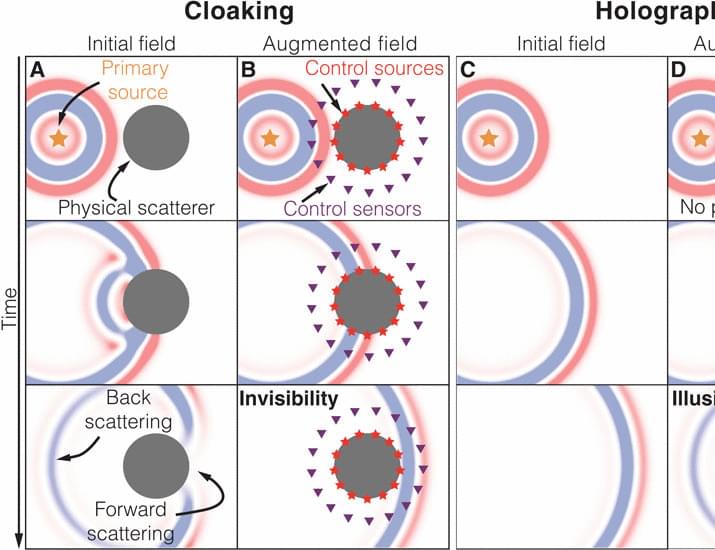
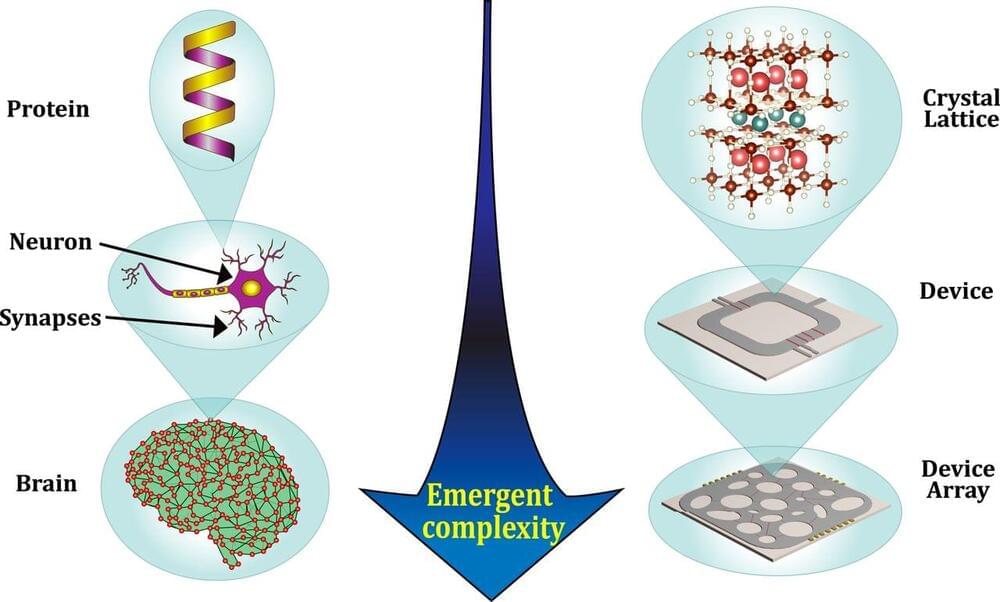
Low-temperature emergent neuromorphic networks with correlated oxide devices
Designing neuromorphic hardware for cryoelectronics is an important area of research as the field of computing paradigms beyond complementary metal-oxide-semiconductor (CMOS) progresses. Superconductivity and metal−insulator transitions are two of the most celebrated emergent, collective properties found in quantum materials such as strongly correlated oxides. Here, we present simulations of artificial neural networks that can be designed by combining superconducting devices (e.g. Josephson junctions) with Mott metal−insulator transition−based tunable resistor devices. Our simulations show that 1) neurons and synapses can be seamlessly created, 2) their functions can be tuned via learning, and 3) controlling disorder by incorporating light ions enables exponential multiplicity of states. The results open up directions for incorporating emergent behavior seen in condensed matter into hardware design for artificial intelligence.
Neuromorphic computing—which aims to mimic the collective and emergent behavior of the brain’s neurons, synapses, axons, and dendrites—offers an intriguing, potentially disruptive solution to society’s ever-growing computational needs. Although much progress has been made in designing circuit elements that mimic the behavior of neurons and synapses, challenges remain in designing networks of elements that feature a collective response behavior. We present simulations of networks of circuits and devices based on superconducting and Mott-insulating oxides that display a multiplicity of emergent states that depend on the spatial configuration of the network. Our proposed network designs are based on experimentally known ways of tuning the properties of these oxides using light ions. We show how neuronal and synaptic behavior can be achieved with arrays of superconducting Josephson junction loops, all within the same device.
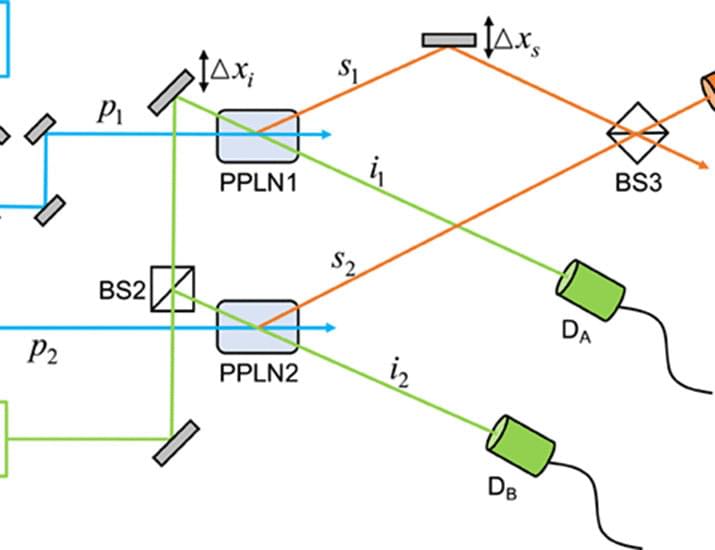

Time-magnified photon counting with 550-fs resolution
Time-resolved photon counting plays an indispensable role in precision metrology in both classical and quantum regimes. Therein, time-correlated single-photon counting (TCSPC) [1] has been the key enabling technology for applications such as fluorescence lifetime microscopy [2], time-gated Raman spectroscopy [3], photon counting time-of-flight (ToF) 3D imaging [4], light-in-flight imaging [5], and computational diffuse optical tomography [6]. For all these applications, one of the most important figures of merit is the single-photon timing resolution (SPTR, also referred to as photon counting timing jitter). The TCSPC SPTR is limited by the available single-photon detectors. For example, photomultiplier tubes typically provide an SPTR larger than 100 ps [7]. Meanwhile, superconducting nanowire single-photon detectors have superior SPTR in the sub-10-ps range [8, 9]. However, cryogenic cooling significantly increases the system complexity. Single-photon avalanche diodes (SPADs) operate at moderate temperature, which makes them a popular choice for various applications mentioned above. Nevertheless, their SPTR is still limited to tens-of-picoseconds level [10]. On the other hand, orders-of-magnitude enhancement on SPTR is required for many challenging applications such as the study of ultrafast fluorescent decay dynamics [11,12].
In this Letter, we demonstrate a time-magnified TCSPC (TM-TCSPC) that achieves an ultrashort SPTR of 550 fs using an off-the-shelf single-photon detector. The key component is a quantum temporal magnifier using a low-noise high-efficiency fiber parametric time lens [13,14] based on four-wave mixing Bragg scattering (FWM-BS) [15 – 17]. A temporal magnification of 130 with a 97% photon conversion efficiency has been achieved while maintaining the quantum coherence of the signal under test (SUT). Detection sensitivity of -{95}\;rm{dBm}$ (0.03 photons per pulse), limited by the spontaneous Raman scattering noise, is possible and allows efficient processing and characterization of quantum-level SUT. The TM-TCSPC can resolve ultrashort pulses with a 130-fs pulse width difference at a 22-fs accuracy. When applied to photon counting ToF 3D imaging, the TM-TCSPC greatly suppresses the range walk error (RWE) that limits all photon counting ToF 3D imaging systems by 99.2% (130 times) and thus provides high depth measurement accuracy and precision of 26 µm and 3 µm, respectively. The TM-TCSPC is a promising solution for photon counting at the femtosecond regime that will benefit various research fields such as fluorescence lifetime microscopy, time-gated Raman spectroscopy, light-in-flight imaging, and computational diffuse optical tomography.

By confining the transport of electrons and ions, scientists show they can alter material properties
Like ripples in a pond, electrons travel like waves through materials, and when they collide and interact, they can give rise to new and interesting patterns.
Scientists at the U.S. Department of Energy’s (DOE) Argonne National Laboratory have seen a new kind of wave pattern emerge in a thin film of metal oxide known as titania when its shape is confined. Confinement, the act of restricting materials within a boundary, can alter the properties of a material and the movement of molecules through it.
In the case of titania, it caused electrons to interfere with each other in a unique pattern, which increased the oxide’s conductivity, or the degree to which it conducts electricity. This all happened at the mesoscale, a scale where scientists can see both quantum effects and the movement of electrons and molecules.

Researchers develop new tool for analyzing large superconducting circuits
The next generation of computing and information processing lies in the intriguing world of quantum mechanics. Quantum computers are expected to be capable of solving large, extremely complex problems that are beyond the capacity of today’s most powerful supercomputers.
New research tools are needed to advance the field and fully develop quantum computers. Now Northwestern University researchers have developed and tested a theoretical tool for analyzing large superconducting circuits. These circuits use superconducting quantum bits, or qubits, the smallest units of a quantum computer, to store information.
Circuit size is important since protection from detrimental noise tends to come at the cost of increased circuit complexity. Currently there are few tools that tackle the modeling of large circuits, making the Northwestern method an important contribution to the research community.